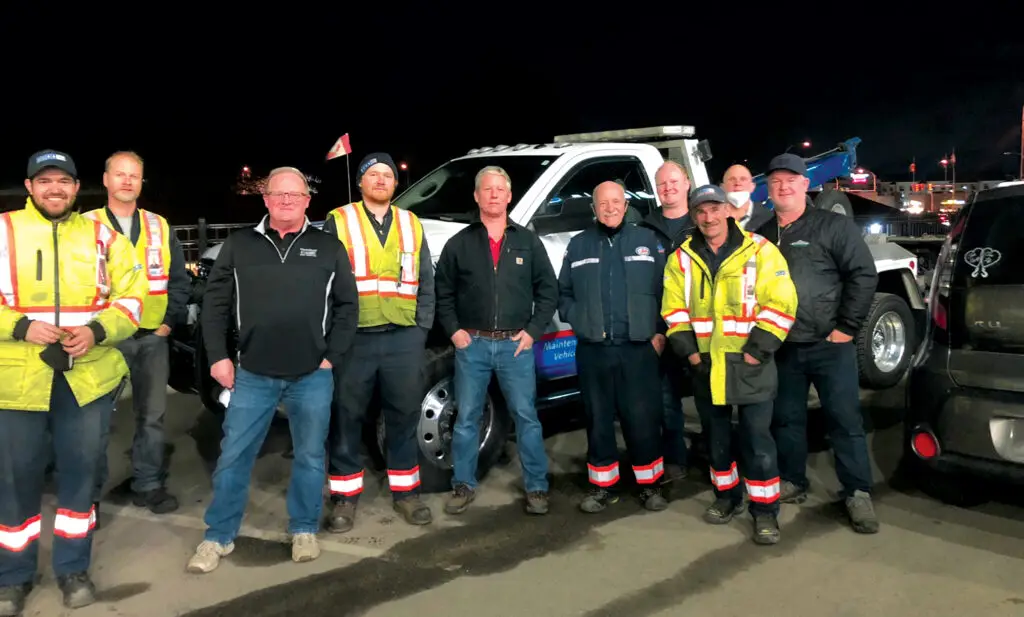by Sarah Bruce
Photos courtesy Kellie Milton
Cover photo: Kelly and the Kelowna crew
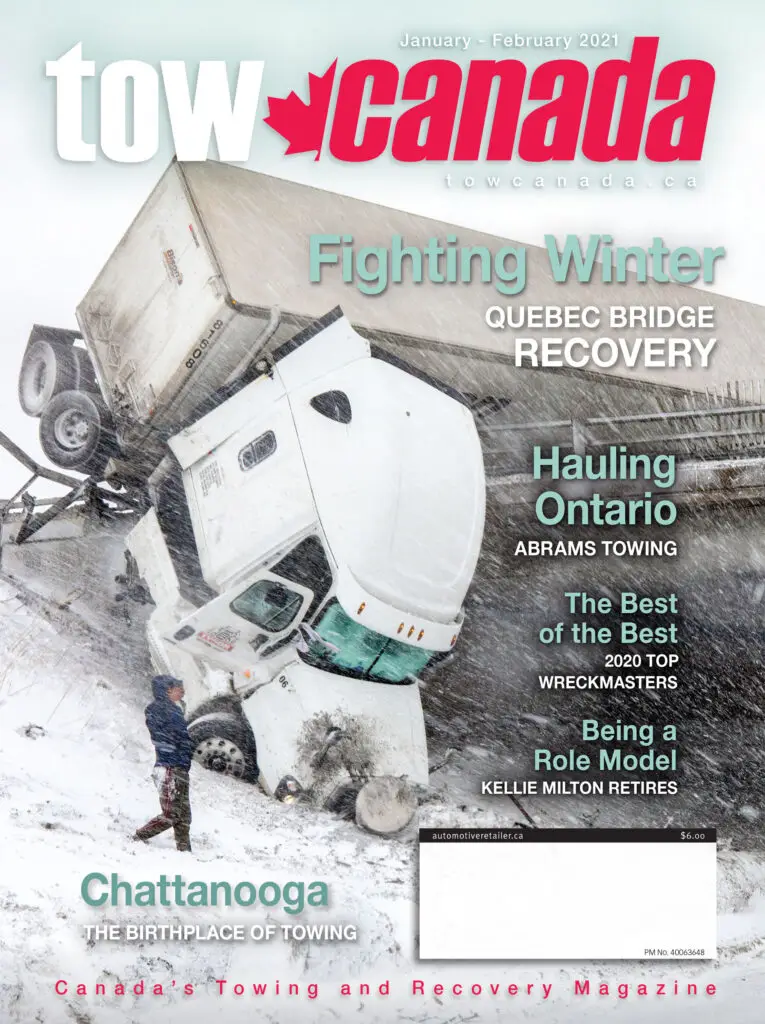
Kellie Milton does not claim to be a role model but, as he headed for retirement last year, the industry will remember him as one.
Like many of the best professionals in the towing industry, Kellie did not start his career as a tow operator, but it was something that found him. Back in the 70s, he was working as an apprentice mechanic at his brother’s service station near Big White, outside Vernon, B.C. When customer demand called for the addition of towing services to the business, they purchased an old ’65 Chevy truck, and Kellie discovered his calling.
“I was pretty much hooked right away,” Kellie said. “I did finish up my apprenticeship but I ended up always towing. It was something I just loved to do. I just enjoyed serving the people. You got instant gratification most of the time. And you know what they say about cranky customers, but I could really count on one hand how many really angry people I had, and it usually wasn’t my fault.”
Kellie’s positive experiences while working in the industry most likely came from the positivity he took to every job. A good attitude goes a long way when a customer is having a bad day. On one such occasion, he impressed a customer so much that Kellie ended up becoming his role model.
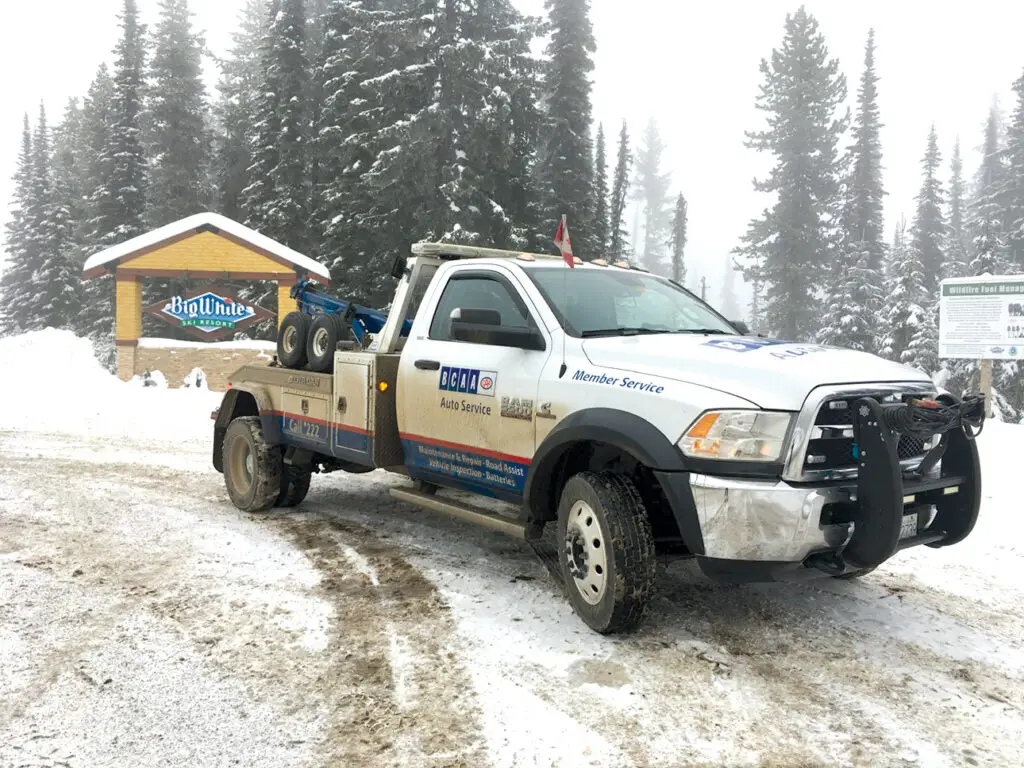
notch equipment and they are more of a family,” he said.
Four years ago, Mathieu Boucher’s brand new Dodge truck broke down in downtown Vancouver and he had to call for a tow. “So, I called BCAA [British Columbia Automobile Association], and Kellie showed up,” Mathieu said. “When he arrived, what struck me first was how clean his truck was. Then Kellie got out of the truck and [it was] just the way he looked—professional and clean. I was in construction back then and in the process of trying to find something more suited to what I wanted to do, but I didn’t know what, so I went to talk to him. I watched what he was doing, asking questions about the job, and he was super helpful, telling me how great his job was, telling me about salary, the perks of doing the job—and a week and a half later I was in my first tow truck.
“If someone had shown up that didn’t care about the work or didn’t care about making it look professional, I would have never ended up driving a tow truck,” Mathieu said, explaining it was Kellie’s professionalism and good attitude that inspired him. “He talks calm, and when people have a flat tire and it’s the end of the world, they’re super panicky because they don’t know what to do. They feel bad about themselves, and I personally don’t have that level of professionalism to calm them down like Kellie can.
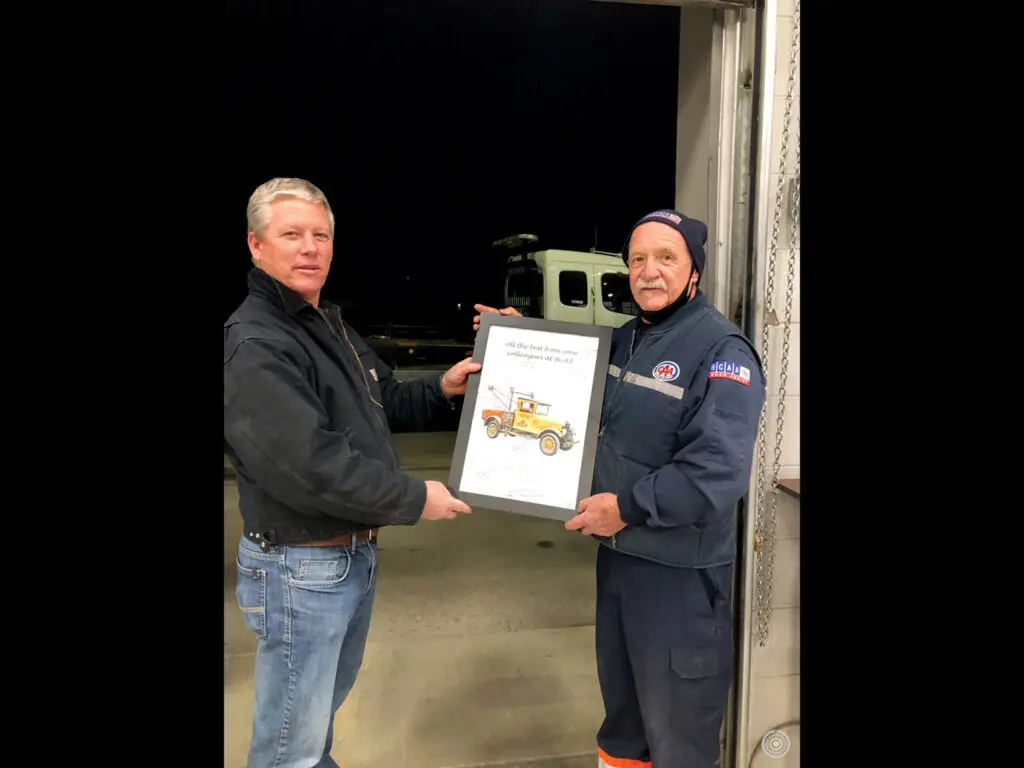
“He’ll probably deny everything and say that it’s not because of him that I’m into towing, but people like him is what it’s all about,” Mathieu said. “He’s always there for everybody. If all the tow operators were like him, the business would be a lot different, and in a better way. I want to thank him for all his years of service.”
If all the tow operators
were like him, the business would be a lot different,
and in a better way.”
Kellie spent nearly 50 years towing and would have happily gone on, but last year it was time for retirement. “I normally keep my tow lights on the floor of my truck so I know if I’ve remembered or forgotten them,” Kellie said. “One day I was driving down the road and I looked over and my tow lights were gone. So, the first thing you start doing is sweating, trying to remember where you left them on the last call. Then it dawned on me, they were on the car I was towing and I thought, maybe it was time. I’d still like to be doing it but the body is saying no.”
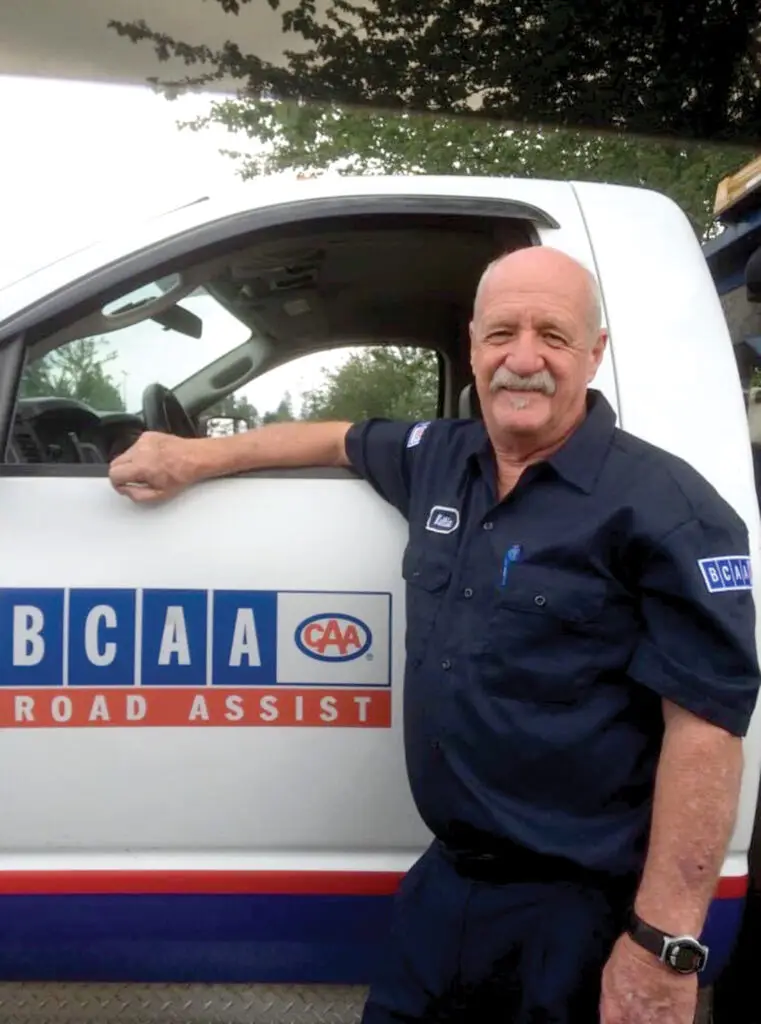
Kellie estimates he has done over 80,000 calls throughout his career and, throughout the decades, he has seen a real shift in the industry.
From his starting point at his brother’s service station, he eventually took a tow truck to Vernon and successfully started his own towing company. During this time, he frequently went down to Vancouver, where the BCAA was hosting a series of seminars about the industry. “I saw the professionalism and training and everyone worked together as a team and I thought this would be a nice place to be.” When a position opened up to work for them, he jumped on the opportunity.
“I took a gamble and in June 1986—it was Expo year and they needed drivers—I went down there. I thought maybe it would be a pit stop as it was the big city and I was used to Kelowna, but it grew on me and I couldn’t ask for a better company to work for. They use top-notch equipment and they are more of a family. Even though there were 80 drivers, everybody helped everybody; it was really nice going into work. Like the saying goes, ‘if you love what you do, you don’t work a day in your life.’”
If you love what
you do, you don’t
work a day in your life.”
In the late 80s/early 90s, BCAA asked Kellie to travel throughout B.C., hosting seminars about safety in towing and recovery. “That’s when I started meeting all these different companies and it brought them all together. Some of the companies up north didn’t even know each other, but when you started to put these seminars together, they became friends and started to work together more. It was more than just training—it brought people together.”
Training and coming together has taken the industry from the “get ‘er done” mentality of old to a recognized profession that people want to get into.
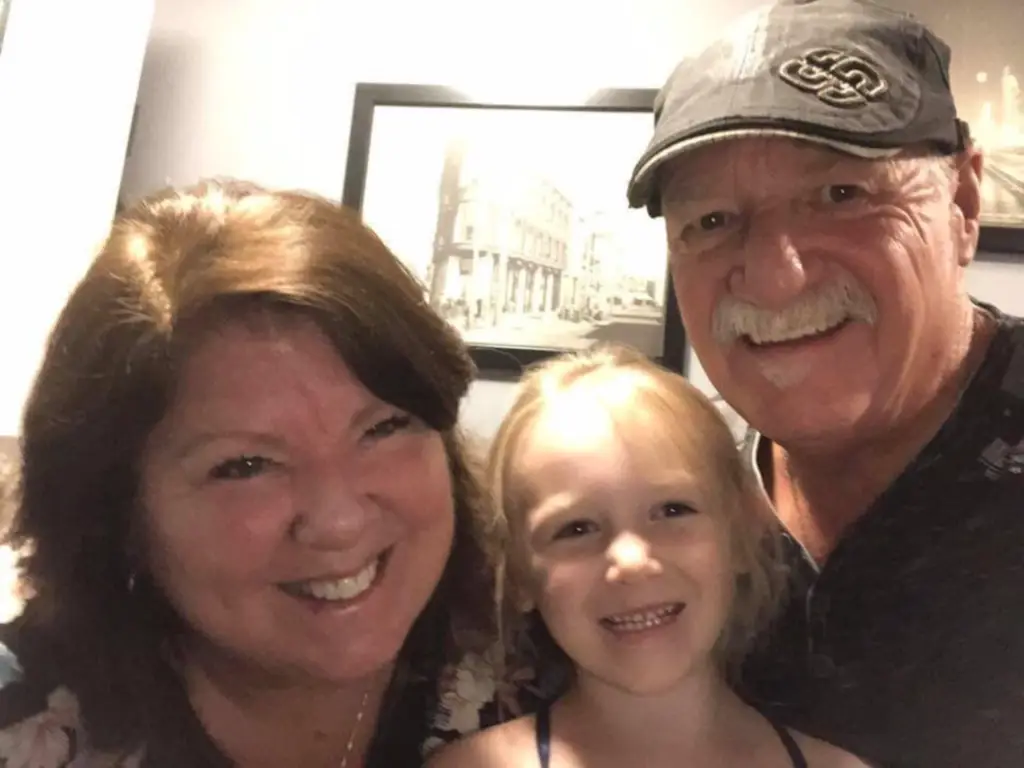
When asked what advice he would give to young professionals, Kellie advised, “Don’t shortcut. For a few minutes that will take just a little longer to get the job done to save yourself a bit of time, don’t even think about it. Do it the right way and do it right the first time, and you’ll have a good night’s sleep instead of thinking ‘is that going to come back and bite me?’” Kellie said, explaining a few minutes saved is not worth the risk of causing damage to a vehicle or injury to the customer or yourself.
“And don’t always think you know everything, because even at my age, I’m even learning stuff from the new guys, as they have a better way of doing it. It’s always a learning process and should be done with an open mind. Also, I like to look at every car like it’s my own. Even if it’s a piece of crap, it’s still somebody’s car that they cherish. It’s not just a piece of junk, it’s their piece of gold.”Lastly, the most important thing young towing professionals should know is their safety always comes first. “Back in January 1984, one of my brother’s drivers was killed on the side of the road,” Kellie said. “To this day, he’s the one that makes me watch out when I’m on the side of the road because he was killed by a drunk driver. He’s on my mind every time I’m working at the side of the road and he’s the one that makes me keep my eyes open and watch my back.”
